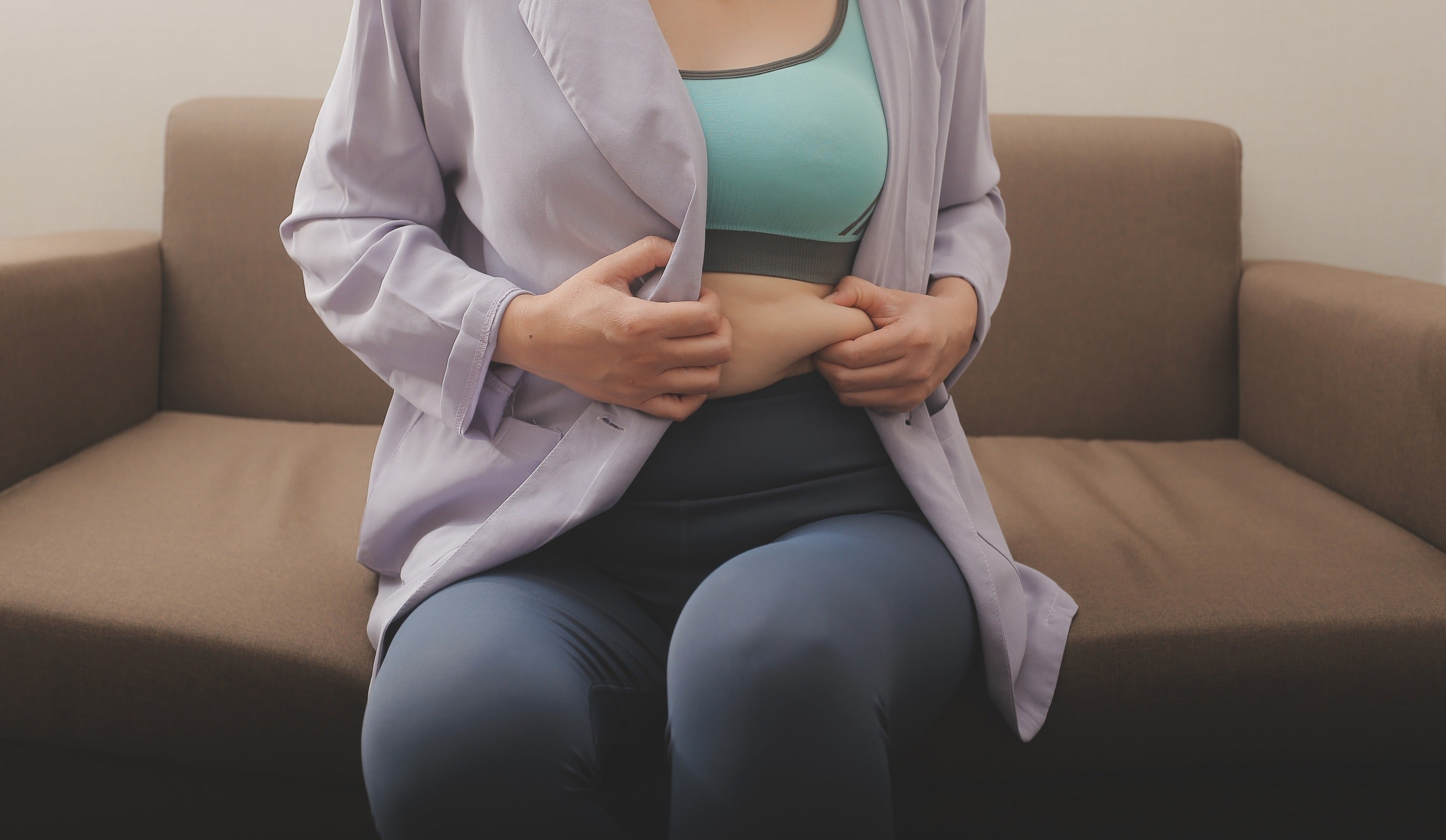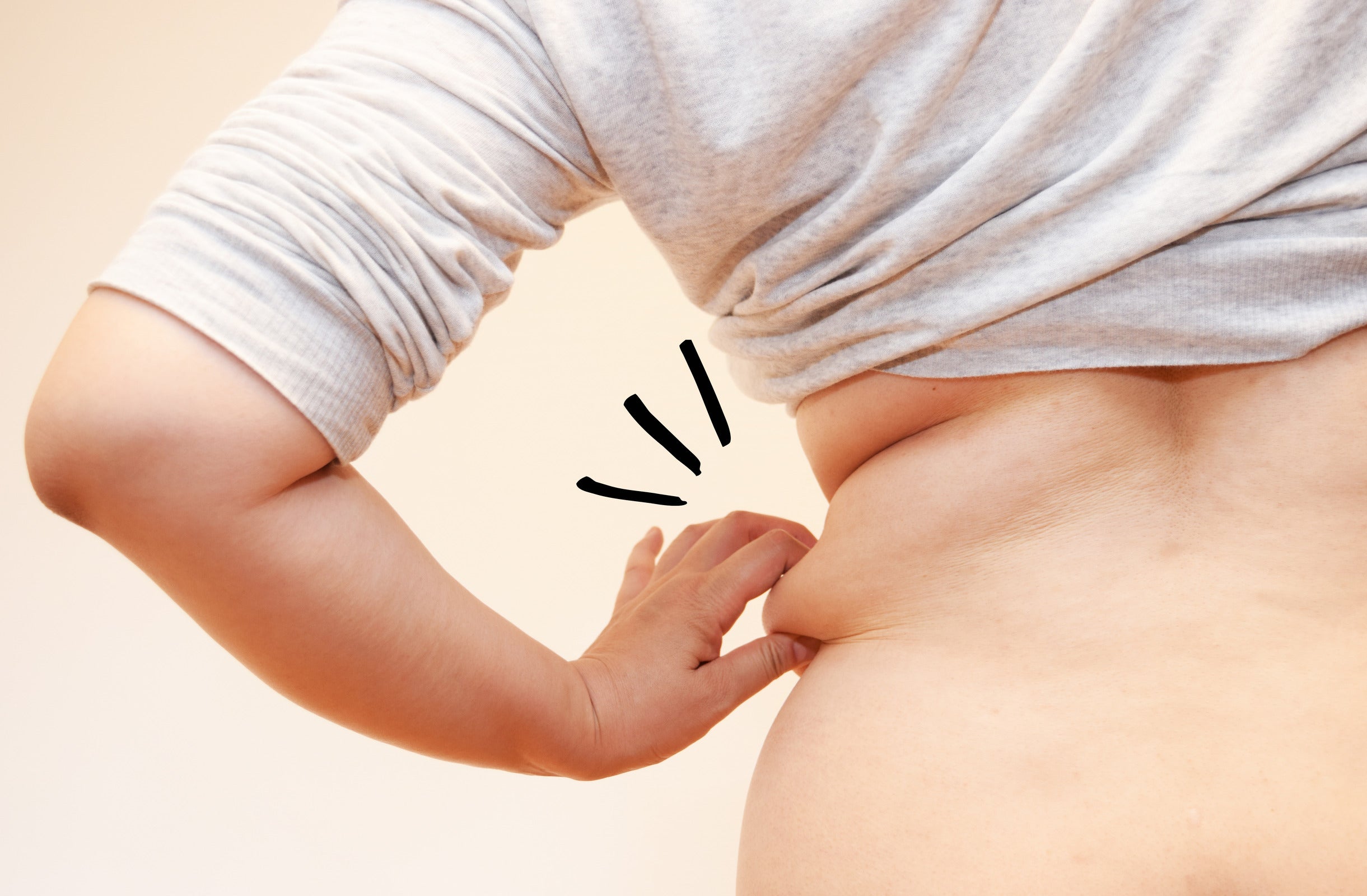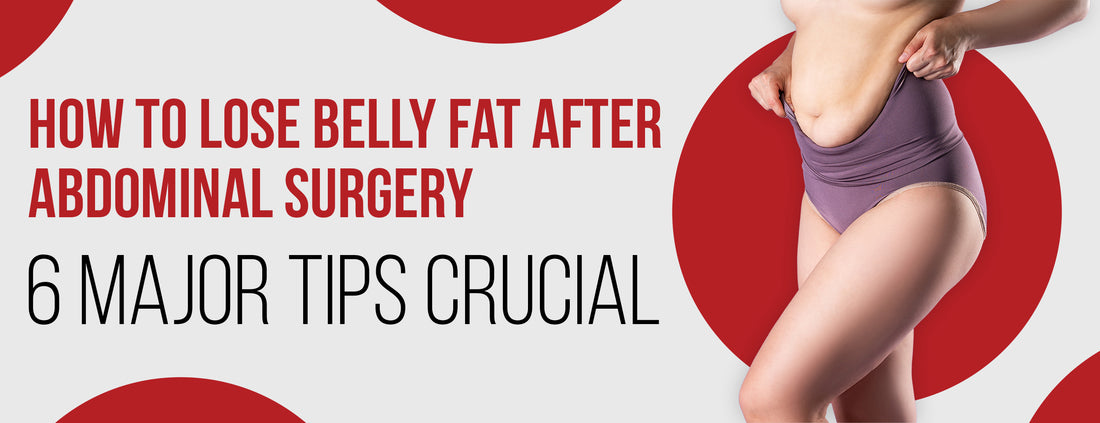Abdominal surgery treats conditions in the abdomen, including stomach, intestines, spleen, appendix, and colon. Weight gain or pregnancy after surgery can affect a stomach tuck. Your abdominal skin will stretch out, and the muscles underneath will separate again. Stomach tucks can be performed similarly to correct this problem.
You can tone up your abdominal muscles by doing abdominal exercises, but they won't do much for your body fat. To tone up your abdominals, you should do cardio and resistance training. Even without crunches, you can get toned abs.
In this blog post, we will explore the steps you can take to reduce abdominal fat and maintain a healthy midsection after surgery.
How to Lose Belly Fat After Abdominal Surgery: 6 Major Tips

The recovery process can also be challenging, especially when managing belly fat. Surgery can lead to weight gain for many patients, especially in the abdominal region. To help combat this issue, we've compiled a list of tips and techniques to help you reduce belly fat.
Nutrition
Dietary Balance
Maintaining a well-balanced diet is crucial for your recovery after abdominal surgery and losing belly fat. Here's why:
- Promotes Healing: A balanced diet provides essential nutrients that aid healing and recovery.
- Manages Weight: Eating the right portions of various food groups helps control weight, a critical factor in reducing belly fat.
- Boosts Energy: Proper nutrition ensures you have the energy needed for daily activities and exercise, aiding in reducing belly fat.

Belly Fat Reduction Foods and Nutrients
Certain foods can be particularly helpful in reducing belly fat. Incorporate these into your diet:
- Fruits and Vegetables: High in fiber and low in calories, they help manage weight and reduce belly fat.
- Lean Proteins: Foods like poultry, fish, and beans provide protein without adding excess fat.
- Whole Grains: Opt for whole grains like brown rice and whole wheat bread to keep you full and aid in weight management.
- Healthy Fats: Incorporate sources of healthy fats like avocados, nuts, and olive oil in moderation.
Meal and Portion Planning
Proper meal and portion planning are essential for controlling your weight and losing belly fat:
- Regular Meals: Plan regular, balanced meals daily to keep your metabolism active and help manage weight.
- Controlled Portions: Be mindful of portion sizes to avoid overeating and manage your calorie intake effectively.
- Stay Hydrated: Drink plenty of water to aid digestion, essential for weight management.
Exercise

Post-Operative Exercise Types
Exercise is vital for regaining strength and losing belly fat after abdominal surgery. Here are safe exercise options for post-surgical patients:
- Walking: Start with short walks and gradually increase the duration as you regain strength.
- Gentle Stretching: Incorporate gentle stretching exercises to improve flexibility and reduce muscle stiffness.
- Low-impact Aerobics: Engage in low-impact aerobics or water aerobics to improve cardiovascular health without putting too much strain on your body.
Targeted Exercises for Abdominal Fat Reduction
Specific exercises focus on toning and reducing belly fat:
- Crunches: Perform abdominal crunches to target the muscles in your stomach and help reduce belly fat.
- Leg Raises: Leg raises can help tone your lower abdominal muscles.
- Planks: Planks are effective for strengthening your core, including the abdominal muscles.
Consistency and Gradual Progress
Character is vital when it comes to exercising post-surgery:
- Start Slow: Begin with gentle exercises and gradually increase intensity and duration as your body strengthens.
- Listen to Your Body: Pay attention to how your body feels during and after exercise. If you experience pain or discomfort, scale back and consult your healthcare provider.
- Create a Routine: Establish a consistent exercise routine to make it a habit, aiding in belly fat reduction over time.
Posture

Poor Posture Affects Belly Fat
Maintaining good posture is essential for reducing abdominal fat and overall well-being. Here's why:
- Muscle Engagement: Proper posture engages your core muscles, helping to strengthen and tone the abdominal area.
- Prevents Fatigue: Good posture reduces strain on muscles and prevents fatigue, promoting an active lifestyle conducive to weight loss.
- Enhanced Appearance: Standing or sitting with good posture can make your stomach look flatter and more toned.
Techniques for Maintaining Proper Posture
Practice these techniques to improve your posture:
- Stand Tall: Keep your head straight, shoulders back, and spine aligned when standing.
- Sit Correctly: Sit with your back straight, feet flat on the floor, and knees at a 90-degree angle.
- Use Supportive Furniture: Choose chairs and desks that support good posture to maintain proper alignment.
Exercises to Improve Posture
Specific exercises can help improve your posture and reduce belly fat:
- Yoga: Yoga poses like the mountain, cat-cow, and cobra pose can help improve posture and strengthen the core.
- Pilates: Pilates exercises strengthen the core muscles, promoting better posture and abdominal toning.
- Posture Correction Exercises: Consult a physical therapist for exercises tailored to improve your posture.
Stress Management

Stress and Abdominal Fat
Stress can contribute to belly fat. Understanding this connection is crucial:
- Hormonal Impact: Stress triggers the release of cortisol, a hormone associated with abdominal fat storage.
- Emotional Eating: Stress can lead to emotional eating, often involving unhealthy food choices contributing to belly fat.
- Poor Sleep: Stress can disrupt sleep, affecting appetite regulation and leading to weight gain.
Techniques for Stress Reduction
Effective stress management can aid in reducing belly fat:
- Exercise Regularly: Physical activity can help reduce stress levels and manage cortisol levels.
- Practice Deep Breathing: Incorporate deep breathing exercises to calm the mind and reduce stress.
- Engage in Hobbies: Pursue activities you enjoy to divert your mind from stressful thoughts.
Benefits of Mindfulness Practices
Mindfulness practices can positively impact stress levels and weight management:
- Stress Reduction: Mindfulness meditation and deep breathing can help reduce stress, consequently reducing belly fat.
- Better Eating Habits: Mindfulness promotes mindful eating, helping you make healthier food choices and control portions.
- Improved Sleep: Mindfulness practices can enhance sleep quality, indirectly aiding in weight loss.
Sleep

Quality Sleep for Weight Loss
Getting enough quality sleep is crucial for weight loss, including reducing belly fat. Here's why:
- Metabolic Balance: Proper sleep helps regulate hormones like leptin and ghrelin, which control hunger and appetite.
- Energy Restoration: Quality sleep restores energy and vitality, allowing you to be more active and exercise to reduce belly fat.
- Stress Reduction: Adequate sleep helps manage stress levels, indirectly contributing to weight loss efforts.
Sleep Deprivation and Abdominal Fat
Lack of sufficient sleep can have adverse effects on belly fat and overall health:
- Increased Cravings: Sleep deprivation often leads to cravings for sugary and fatty foods, contributing to weight gain.
- Hormonal Imbalance: Sleep deficiency disrupts hormone levels, including cortisol and insulin, which can lead to increased fat storage, especially in the abdominal area.
- Reduced Energy: Inadequate sleep can make you feel tired and less inclined to engage in physical activities, hindering weight loss efforts.

Tips for Improving Sleep
Follow these tips to enhance your sleep quality and aid in belly fat reduction:
- Establish a Routine: Stick to a consistent sleep schedule to regulate your body's internal clock.
- Create a Relaxing Environment: To promote better sleep, keep your bedroom calm, dark, and quiet.
- Limit Screen Time: Avoid screens (phones, computers, TV) at least an hour before bed to reduce exposure to stimulating light.
- Practice Relaxation Techniques: Techniques like deep breathing, gentle stretching, or reading a book can help you relax before bedtime.
Medical Considerations

Medication and Abdominal Fat
Certain medications can influence weight and abdominal fat. Understanding this impact is crucial:
- Metabolic Effects: Some medications can affect metabolism and lead to weight gain or fat accumulation, especially in the abdominal area.
- Appetite Changes: Medications may alter appetite, leading to increased food intake and potential weight gain.
Follow-up Appointments
Regular follow-up appointments with your healthcare provider are essential for monitoring your progress and making necessary adjustments to your treatment plan:
- Assessment: Healthcare professionals can evaluate your weight, body composition, and overall health, providing valuable insights into your progress.
- Medication Review: Your provider can review your medications to ensure they are not hindering your weight loss efforts.

Abdominal Belly Fat Medical Interventions
Medical interventions may be necessary to address stubborn belly fat:
- Liposuction: A surgical procedure that removes fat from specific areas, including the abdomen.
- CoolSculpting: A non-invasive procedure that freezes and reduces fat cells in targeted areas.
- Consult a Specialist: If traditional methods don't yield the desired results, consulting a specialist for tailored advice and potential interventions is an option.
Conclusion
Abdominal surgery can be challenging, but with the right approach, it is achievable. You can enhance your recovery process and reduce excess belly fat by incorporating a well-balanced diet, targeted exercise routine, good posture, stress management techniques, and quality sleep.
It is also important to remember that medical considerations and follow-up appointments should always be noticed, especially when dealing with stubborn belly fat.
By putting in the effort and caring for your body, you can significantly improve your quality of life after surgery. We hope the information in this blog post has been helpful and wish you all the best on your journey to a healthier and happier life.










![The 16 Best Fastest Way To Remove A Mole Naturally [DIY]](http://drnumb.com/cdn/shop/articles/What_Is_the_Fastest_Way_to_Remove_a_Mole_Naturally__16_Solutions_DIY.jpg?v=1704371079)



